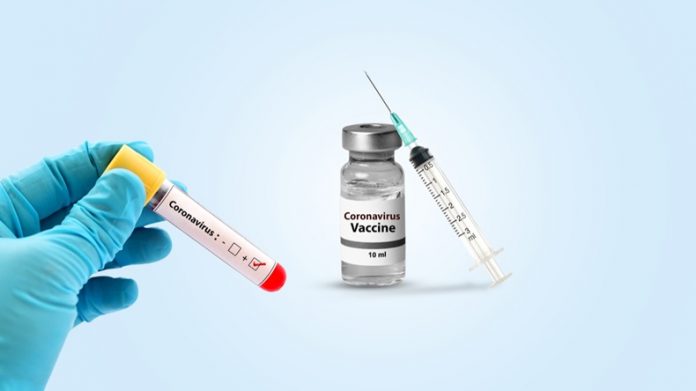This article is written by Shubhangi Agrawal from Hidayatullah National Law University, Raipur (C.G.). This article shares a view on the need for licensing the drugs used for the treatment of COVID 19.
Table of Contents
Introduction
The issue of compulsory licensing came in the outbreak of HIV/AIDS as a global pandemic when the requirement to access patented drugs came with immense pressure. According to a report, every 1 in 55 individuals in India has suffered COVID 19 (the number differs for densely populated states). These numbers show us the need for medication required by the people in fighting this pandemic. There have been many cases where people have lost their loved ones due to the non-availability of drugs required for treatment. The Indian Drug Manufacturer’s Association (IDMA) has several times urged the government to introduce the compulsory licensing system suggested by the World Trade Organisation (WTO) for the drugs manufactured for COVID 19 such as Remdesivir which is being widely demanded by the population.
With the high demand and less supply of these important medicines in the market, people are ready to buy these in any amount to save the lives of their family which in turn is giving rise to black marketing of such products, and also fake or duplicates of these products are being produced.
Compulsory licensing for COVID drugs – a mandatory requirement
“Compulsory licensing is a license issued by a state authority to a government agency, a company or other party to use a patent without the patent holder’s consent.” With the increase in cases in the country, people are facing problems due to the non-availability of medicines. The black marketing of drugs that are being performed puts common people in a burden to either buy medicines from these illegal sources or lose their loved ones. The urgent need by the people’s side is to cap the prices of the medicines at least till any permanent resort is not to be formed. With the increase in black marketing for these urgent medicines and injections, people have no other option but to choose to buy the drugs at a much higher price than the original cost of the medicines. The need for introducing compulsory licensing by WTO was to curb the black marketing and all to tackle the kind of eventuality which leads to black marketing of drugs. Even the government from different countries should adopt this strategy to stop the due business that is running against the law.
There have been many instances of hospitals reporting the shortage of drugs and injections for emergency patients as well. It was also mentioned by Delhi High Court in the case of Rakesh Malhotra v. Government Of National Capital (2020), that the state should if required, seek into the matter of compulsory or voluntary licensing by the manufactures for the production of the medicines and also tell the manufacturing companies to speed up the production of the medicines as it is the urgent need of the country.
Off-label use of medicines
As per the WTO reports, the use of medicines that are not being indicated for use by the National Medicine Regulatory Authority is called off-label use of medicines. Such medicines, when prescribed by health workers or doctors, are subject to be against the rules, regulations, and laws of the country. The people serving in the health care sector should be aware of the laws governing their area of practice and must comply with the same. There might be exceptional cases where prescribing such drugs is a necessity, which might differ from a case-to-case basis. Creating false or fake shortages in the market and stockpiling such medicines, which are required for the treatment of the disease, is strictly prohibited and must be genuinely avoided by the people and the government should also look into putting a check on the activities of the market.
It can also be argued that providing experimental drugs to critical patients might be a case of hit and try but it can be appropriate to provide certain experimental medicines to individuals provided that no appropriate treatment for such disease exists. Also, it is very necessary for the doctor to ask the legal counsel and inform the family of the patient and obtain their consent for the same. The decision to provide certain medication to the patient is a discussion between the doctor and the patient but it must be in line with the national laws of the country.
A rise in black marketing of drugs
In the time of pandemics, where many of us are busy helping people find verified resources for medicine, oxygen, and beds, there are people involved in not only illegal but also immoral acts. An act that is against humanity that is making a profit by selling these black marketed drugs to the needy by charging double or triple even more than that of the actual cost. Out of the many problems which the production of medicines by unauthorized, unlicensed is leading one out of the bulk is the increase in black marketing.
The Hon’ble Supreme Court in this matter also stated that black marketing of medicines and drugs in itself is exploitation and with the ongoing pandemic, it is also very dangerous for people who are taking undue advantage of people’s misery. To which the court has also directed the centre to take actions into such cases and build a special team for identifying and prosecuting such offenders. The apex court also directed on imposing a protocol on ambulances for not charging exorbitant amounts of money from patients and also the centre should look into having a portal for easy reporting and dissolution of such cases. The bench of the said matter was headed by Justice DY Chandrachud. The bench also noted that several drugs of high demand and importance like Remdevisir and Tocilizumab are being sold at significantly higher price rates or even in fake forms just to gain profits by exploiting the people in need. The court mentioned that “this is a condemnable attempt to exploit people’s misery and gain profits from their helplessness” which should be looked at and worked upon as soon as possible with a solution to curbing such black marketing.
Benefits associated with compulsory licensing
Compulsory licensing is often suggested in cases where the diluting of a patent holder’s right becomes unavoidable. The saying “the necessity is the mother of patents” comes as an appropriate measure. Compulsory licensing grants various benefits. While it creates reasonable security for the product, it also makes it open for wide distribution and production at a reasonable price. The benefits of compulsory licensing of drugs are many:
Cap on the price of drugs
Compulsory licensing, if not imposed, will cause monopoly of manufacturers, importing of drugs due to less production and high demand, more middle-man connections involved in transportation, strengthening of the black-markets and many more cons which will gradually lead to people paying high for such medicines. And contrary to this, if licensing is made compulsory, it will cap the prices by reducing all the above costs.
Flexibility
Through compulsory licensing, the patented medicines or drugs could be manufactured locally under reliable sources and also will lead to saving in various costs that are involved in importing the manufactured drugs from other places. This especially will benefit the countries to whom getting access to a patented drug in such a health crisis has become unaffordable. Also, diluting the power provided by a patent to some drugs or medicines will help them to make copies of the same. This also includes lessening of middlemen involvement leading to cut down in cost and more efficient distribution of the same at the required places.
Reduction in black marketing
As already discussed, the main cause of black marketing is the fear of people losing their loved ones. Once the medicines and drugs are available in the open market and are accessible to common people who need them at a reasonable price, people would instantly choose to buy them legally rather than going through the black market caps. Having intervention by the local and state officials will also lead to medicines being transferred legally to where they actually should.
Fake products cannot be produced
If the licensing is made compulsory by the government in case of manufacturing of the drugs for COVID 19, then that would mean having a proper database of who and where the medicines are produced and in what amount. Having a local network of manufacturers will lead to more control by local and state officials which will enable them in getting exact numbers of genuine medications produced and hence, avoiding the supply of fake products entering into the market.
Break up monopoly
Compulsory licensing of the COVID drugs will lead to a range of producers in the market working towards the manufacturing of the drugs and supplying the same to the government and people. This will lead to breaking the monopoly in the market which is now only limited to certain manufacturers in the sector and will help in maintaining the price at a reasonable level.
The prosperity of local pharmaceutical companies
Diluting patent rights and introducing compulsory licensing will provide new ways for the local companies to prosper. They will have a whole new exposure of manufacturing such high importance medication which will make them more committed towards their work and help them make their better standing in the market.
Ways in which the public would have benefitted
The government takes reasonable steps in controlling all the cons. Compulsory licensing is introduced in the pharmaceutical sector in the manufacturing of the drugs that the population of the country will have immense benefits with. All the benefits of compulsory licensing, like revenue generation, more employment, affordable drugs, and refraining from buying fake products which are priced at unfair amounts, will directly or indirectly be gained by the people of the country.
When the concept was introduced, compulsory licensing is for the benefit of the people by providing them with the medicines and drugs which are the need of the hour. Not getting suitable medicines just because they’re patented is an act of immorality. The dilemma of patentee’s rights and patient rights is a straightforward topic of discussion in such situations of pandemics. Back in time, health care has been of very much importance to the government and the people of a country but facing such dilemmas in this situation, the patentees should be compelled to think about the national benefits which will be gained by their dilution in patent rights. As, if we see patentee’s rights also, it can be argued that they have already been subject to huge benefits from such drugs when the rights are only limited to the patentee themselves. As the patents encourage monopoly and overpricing, curbing them and introducing compulsory licensing is a phenomenon to be encouraged in certain exceptional situations like the one we are currently facing.
Conclusion
To conclude all this, we can say that imposing compulsory licensing has many benefits as considering the situation we are in right now but also it is a dangerous act that leads to the delusion of the rights of the patent holder. One is to be chosen from the two, according to the situation’s demand, and it can be reasonably argued that compulsory licensing is the need of the hour and helps to ensure patients’ rights in this pandemic. The health of an individual and saving the lives of people is more important, and having a proper supply of drugs is of utmost importance in the current scenario.
References
- https://blog.ipleaders.in/compulsory-licensing-in-indian-patent-law/amp/
- https://blog.ipleaders.in/implications-of-grant-of-compulsory-licensing-of-patent-in-india/amp/
LawSikho has created a telegram group for exchanging legal knowledge, referrals, and various opportunities. You can click on this link and join:
 Serato DJ Crack 2025Serato DJ PRO Crack
Serato DJ Crack 2025Serato DJ PRO Crack











 Allow notifications
Allow notifications


